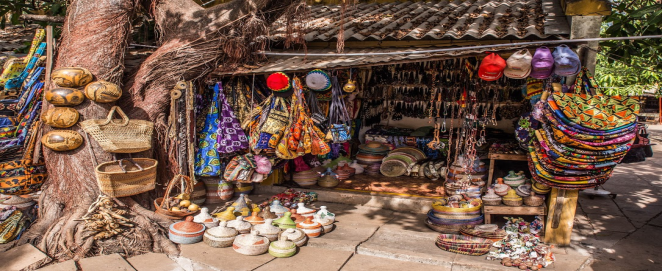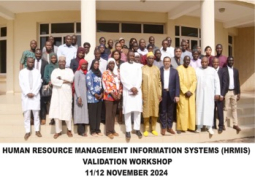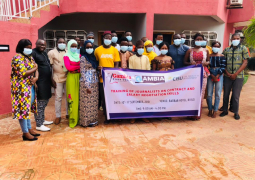
Small market vendors, vegetable sellers as well as women selling at craft markets highly depend on tourists, who usually come to buy their products. Now that the industry has stalled, these women find it very difficult to make ends meet.
Isatou Jallow, a mother of one, who has worked in the tourism sector for 7 years, sells batik and local beads at the Fajara Craft Market. She explained that she went through a lot since the pandemic hit the country.
“For over a year now, I am sitting at home without doing anything as a single parent. I am now very depressed and confused because I rely on this job to pay for my son’s school fees. Apart from Allah, there is no help from the government yet,” she disclosed.
She urged the government to help them with at least a little amount of money to help them revive their petty business and help themselves and their children.
According to the Gambia Tourism Board, tourism contributes more than 20 per cent of the Gross Domestic Product (GDP). However due to the impact of the pandemic, tourism alone is said to have lost up to 6.7 billion dalasis, according to an impact assessment commissioned by the Gambia Hotel Association and the Travel and Tourism Association of The Gambia.
Experts suggest that the status quo will hamper private sector contribution to the revenue of the country. It has even affected some businesses that resorted to closing or scaling down operations and their staff.
The Central Bank’s quarterly Business Sentiment Survey showed a significant shift in business sentiment due to the Covid-19 impact. Businesses projected low economic activity in the remainder of 2020.
Difficult to earn a living
Binta Jatta, commonly known as Retta, also has a small shop at the Bakau Craft Market, selling batiks, tie and dye. The mother of three lamented that since covid-19 hit the country, they have not made any meaningful business.
“Even to pay for the rent of my shop is a problem. Whatever I earn, it disappears. My children and I are now living from hand to mouth. I am the first born of my parents and have to help my mother and my siblings and my children. The industry was my hope but it’s been over a year now that all of us are staying at home."
Ndey Fatou Fatty, a mother of four who sells wood carvings and paintings at the Banjul Craft Market, stated that the worst experience she had ever encountered is sitting at home without knowing what the future holds for her.
She said she feels ashamed because the people she used to help are the ones she relies on for help.
“Covid-19 does not only affect our work but takes us backward to start all over again. I am pleading with the government to support our school going children who are our hope even if they do not help us."
Last year The Gambia government through the Ministry of Tourism allocated funds for those working in the tourism industry as a recovery mechanism. However, all these women have claimed that they did not receive any funds from the government.
Alieu Secka, chief executive officer (CEO) of The Gambia Chamber of Commerce and Industry (GCCI), disclosed that research has confirmed that Covid-19 has been devastating to Gambian economic operators, especially the micros and small businesses of which women form a majority.
He stated that MSMEs in The Gambia are the primary job creators, contributing more than 26% of the real GDP and accounting for 63% of employment, with 70% of private sector operators being MSMEs.
He said that the most affected group when covid-19 hit were women, who struggle on a daily basis just to put food on the table.
The Gambia recorded its first covid-19 case in March 2020. Since then, the country has recorded 174 deaths and 5,882 cases.




